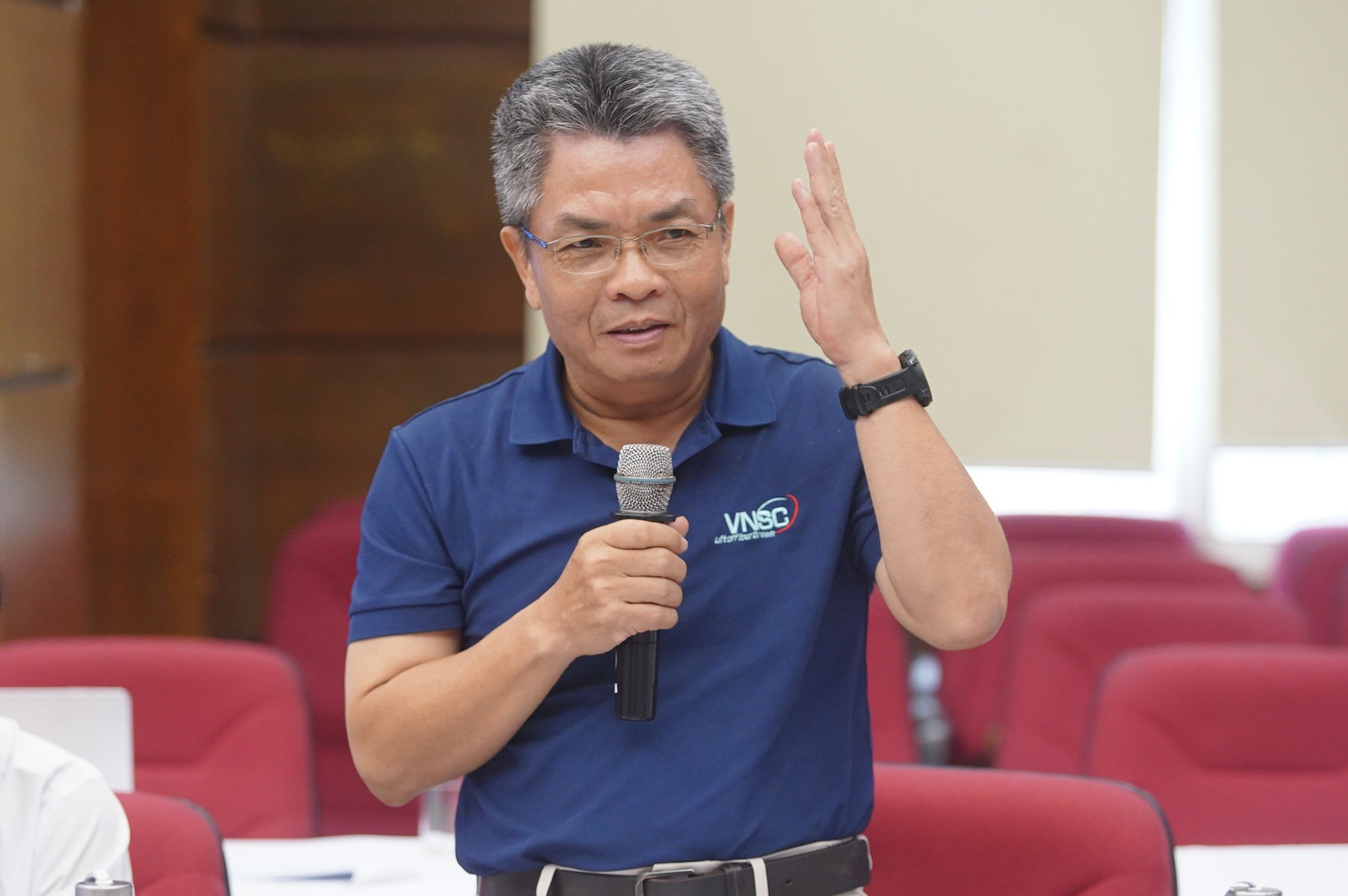
Tuan cited the figures at a recent event to highlight barriers to attracting space talent back to Vietnam. Space technology is identified as a strategic sector, potentially driving socio-economic development and national defense and security for Vietnam.
However, amid vast opportunities, the industry faces a persistent challenge: a shortage of high-quality human resources and inadequate compensation policies.
The topic was discussed at the seminar "Making space technology a new development driver," held several days ago.
A prominent issue is the stark disparity between training costs and the income of engineers upon returning to work in Vietnam.
"Training a master’s degree candidate abroad for two years costs about VND5-6 billion, but upon return, they receive a state salary of only VND7-8 million per month. There are no significant incentives," Tuan said.
This income level not only disappoints trained professionals but also poses a major obstacle to retaining and attracting talent, especially when they have far better opportunities abroad with salaries far higher.
Beyond compensation, the working environment is a critical factor. Nguyen Trong Hien from NASA, noted: "To attract talent, we need an open environment. Many Vietnamese intellectuals abroad want to return to Vietnam but hesitate due to restrictive mechanisms and unfavorable conditions."
He suggested that resolving these systemic issues would unlock greater potential in space technology.
This view was echoed by Nguyen Quan, former Minister of Science and Technology. He proposed adopting a "sandbox" approach under the National Assembly’s Resolution 193, allowing flexible management models.
Chief engineers, whether Vietnamese or foreign, should be given full authority over finances and expertise to lead major projects, provided they have experience, capability, and credibility.
Young generation indifferent to basic science, space technology
Another concern is the lack of a successor workforce. Quan commented that Vietnamese youth are largely uninterested in space technology. There’s little motivation to study math, physics, or astronomy. “If all young people chase market profits, no one will pursue basic research."
Ly Hoang Tung, Deputy Director of the Science, Technology, and Industry Department at the Ministry of Science and Technology, confirmed that the proportion of students choosing basic science is very low.
Meanwhile, Le Thanh Huong, CEO of Sao Vega Company, noted that students won’t pursue the majors without market or media campaigns.
She also noted a disconnect between training and practice: businesses need students skilled in AI, English and GIS, but curricula haven’t been updated.
Thus, a fundamental solution is systematic, long-term investment in training and human resource development. Quan recalled the subsidy era when state policies supported math, physics, and chemistry education, producing talented scientists. Now, without intervention, basic research and high-tech fields struggle to attract talent.
"We must allocate a significant portion of the budget to train both technical staff and experts to meet the government’s expectations. Otherwise, there won’t be a young, skilled workforce to succeed current scientists," the former Minister said.
Dr Nguyen Luong Quang from CEA Paris-Saclay (France) suggested new training formats like hackathons, gifted schools, and tech startup incubators.
He cited the SAGI Astrophysics Group in Quy Nhon, which attracted over 200 international scholars to collaborate over three years despite less favorable conditions than Hanoi or HCM City.
The project offers post-doctoral researchers salaries comparable to international standards, granting them full autonomy over their work and research investments.
As a businesswoman, Le Thanh Huong proposed specific solutions: integrating space technology into the national digital transformation program; exempting liability for satellite data applications to encourage businesses; organizing space knowledge dissemination programs; and prioritizing research contracts for domestic enterprises.
Vietnam’s space technology industry is at a pivotal stage. Great opportunities won’t translate into achievements without solving the human resource challenge.
"Without a strategy to attract businesses and Vietnamese scientists, we cannot achieve Resolution 57’s goal of making Vietnam a high-income developed nation by 2045," Dr. Nguyen Quan said.
Thai Khang